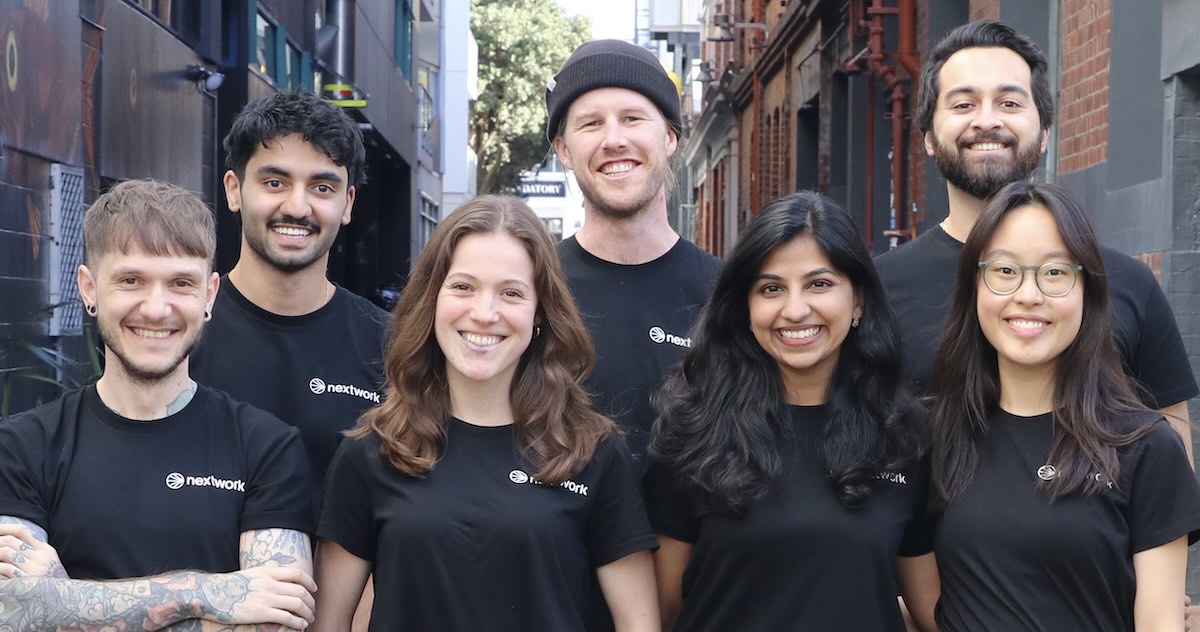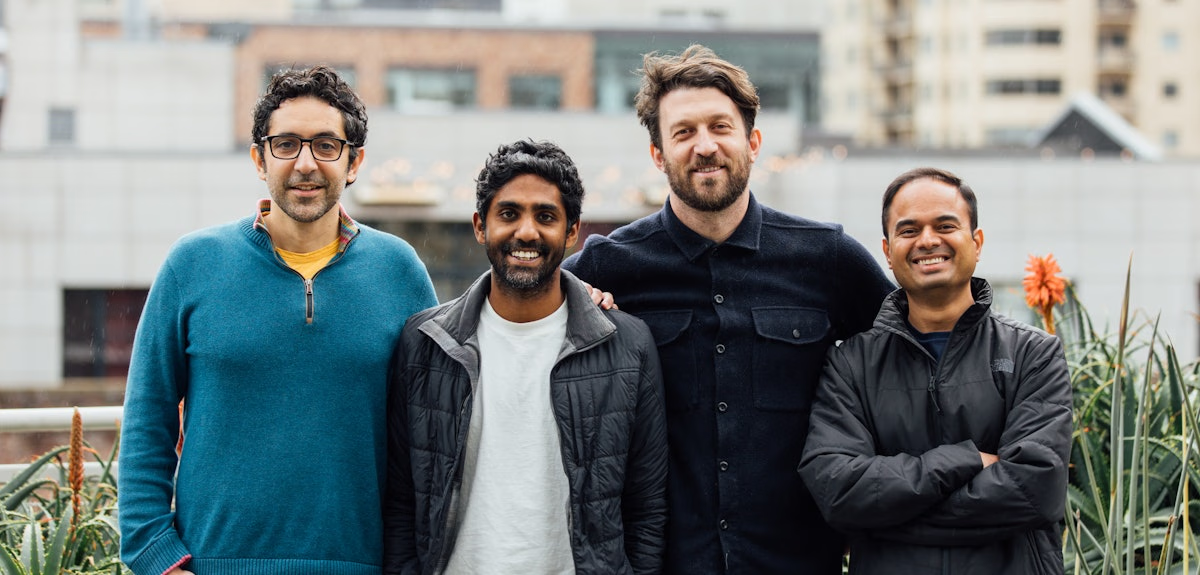
Spotlight On: Beenu Arora and Manish Chachada, Cyble
Blackbird’s monthly chat with talented leaders and rising stars in our community, this month with Beenu Arora and Manish Chachada of Cyble.
When it comes to cybersecurity, Cyble goes deep. By gathering darkweb, deepweb, and open-source intelligence (OSINT) the company provides organisations with real-time visibility to vulnerabilities in their digital footprint to help combat cyber threats effectively.
First meeting as students of the joint MBA program at Columbia University and London Business School, Cyble co-founders Beenu Arora and Manish Chachada have built a global business at breakneck speed. Today Cyble has team members in Australia, the USA, India, and Singapore and has built an impressive client base including a number of FORTUNE® 500 companies.
We caught up with Beenu and Manish to learn how they navigate the co-founder relationship from opposite sides of the world, common cybersecurity myths and how they're building Google for the darkweb.
B: You've both had diverse careers spanning all kinds of roles and geographies - how did these experiences inform the idea behind Cyble?
BA: I have been in the Cybersecurity space for over 15 years, and one of my biggest pains was that the industry solutions on the darkweb and deepweb monitoring were very limited. Most of the threat intelligence we see on the public internet is post facto, i.e., available after the threat actors collaborate, share, and exchange information on the darkweb which remains unnoticed by organisations for a while (6 months and more). There is an opportunity to ensure organisations are better aware of these threats in advance and to allow them to prepare in time.
MC: As a CFO working in the tech space for over 15 years, my career has centered around dealing with financial, compliance, and brand-related vulnerabilities. As we grow into an information-centric economy, the onus on companies and their budgets is increasing, besides emphasizing the need to ensure the security of so-called information. The darkweb and its nefarious activities make organisations vulnerable to serious, and sometimes irreparable damage. Going back to my experiences as an auditor, advisor, and compliance holder, I always felt that the next big risk to the new-era tech world stems from the cyber world. The idea of doing something to help companies monitor their cyber risk resonated with me immediately when laying the foundations for Cyble.
B: You first met at Columbia University; what brought you together to found Cyble?
BA: Throughout our conversations at Columbia, Manish and I realized that demand for darkweb threat intel was only going to grow and has a more relevant gap to fill as technology keeps advancing along with people's usage of the internet snowballing. We shared a common vision from the beginning, of making the world more cyber secure as threats keep growing and awareness remains preliminary. This common end goal is a large part of what brought us together to sow the seeds for Cyble.
B: Why did you decide to focus on monitoring the darkweb instead of the visible web?
BA: There are plenty of services that focus on surface web monitoring, and a savvy internet user can easily navigate them without needing to be an infosec professional. As we have seen more often, the darkweb is much more insidious and an opaque threat to the collective cyberspace we all occupy. What many people don't know – or take for granted – is that most of all threat activities are on the darkweb.
MC: The timely monitoring of risks is crucial. Intelligence is volatile and needs to be availed well in time to ensure effective risk dilution. The fundamental correlation between timing and intelligence holds true in managing risk and threat at any level of security planning. Having blind spots on an important piece of intel, aka darkweb intel, will keep organisations uninformed of the entire threat landscape. This is why we decided to make intelligence more meaningful and complete – “360 Vision” as we call it.
B: What's the biggest misconception business leaders have when it comes to cybersecurity?
BA: The biggest misconception that business leaders have today is that they think they're not vulnerable unless targeted or attacked. This sometimes makes them complacent with just having an antivirus. In addition, it is often the human element that makes firms vulnerable to cyberattacks. The reality is that there are several ways a person or an entity's data can get on the darkweb. It could be lax security protocols, or unsecured communications and file-sharing, or something as simple as a weak password.
MC: As rightly said by Beenu, it is human to ignore the problem at the core. But just as all businesses are evolving, the cybercrime world is maturing and spreading rapidly, making companies from any vertical of growth primary targets of cyberattacks. While it is a financial and managerial burden, the risk-rewards at stake are high, thereby calling for organizations and their leaders to give cybersecurity and darkweb monitoring a serious place in their business operations. These are the new-era business problems and should be dealt with just like any other business problem.
B: How do you navigate the co-founder relationship when you're on opposite sides of the world?
MC: Being in two parts of the world allows us to navigate better. It has helped create an ongoing model making us global quickly. We make it a point to connect during each of our mornings and do an update on our days. Besides, we keep having multiple touchpoints, including emails, chat groups, calls, common team calls, and more. Sharing some burden on roles also allows us to take ownership of some problems and support each other in the best way possible. Above all, we have had the fortune of building an amazingly vibrant team full of individuals who work with passion and truly believe in our goal.
B: What most excites you about the future of Cyble and why?
BA: The world is quickly adapting to the reality of the darkweb and has begun accepting the growing need for vigilance. We are excited to see how we can adapt and scale in tandem with many disruptive technologies gaining traction in the cybersecurity landscape.
MC: Cyble has many things going for it including excitement about the very nature of the work we do. Cyble has its place in any and every industry problem statement, which allows us to grow and serve multiple use cases as we grow. We are excited to see Cyble pivot into multiple segments of intelligence, moving towards its penultimate goal of being the Google of the darkweb.
Cyble's Spotlight On:
A book you couldn't put down: A book you couldn't put down: Strategic Intuition by William Duggan, one of the amazing professors at the Columbia Business School.
A podcast worth the listen: We don't follow podcasts but do love listening to experts from various fields at conferences - looking forward to Black Hat '21.
Someone to follow on social: Bleeping Computer.
Learn more about Cyble and how they help protect businesses against cybercrime here




.jpg)





